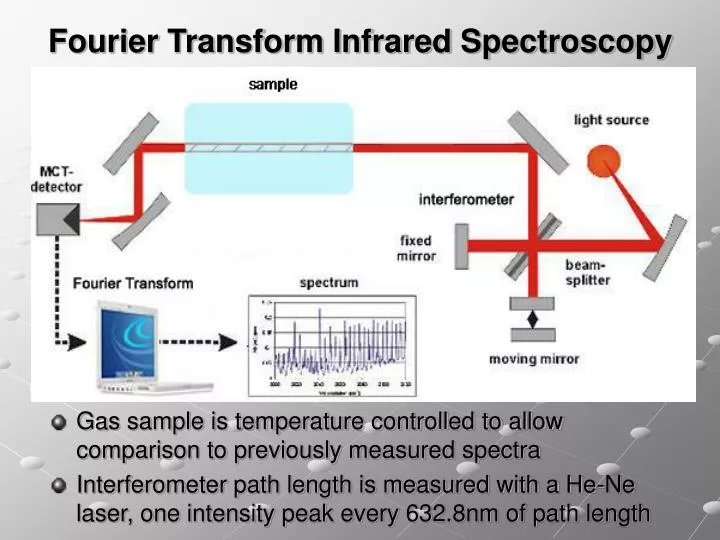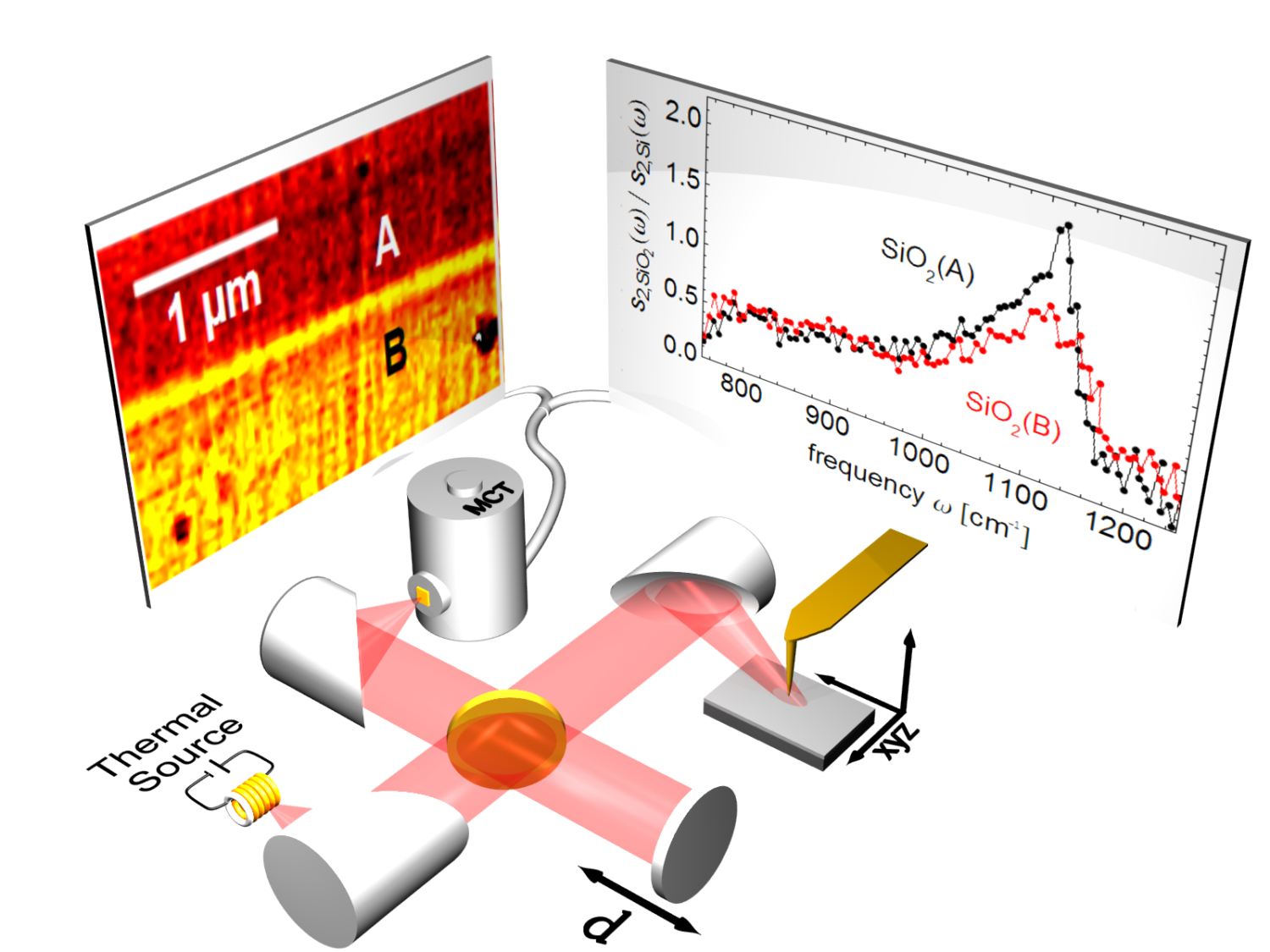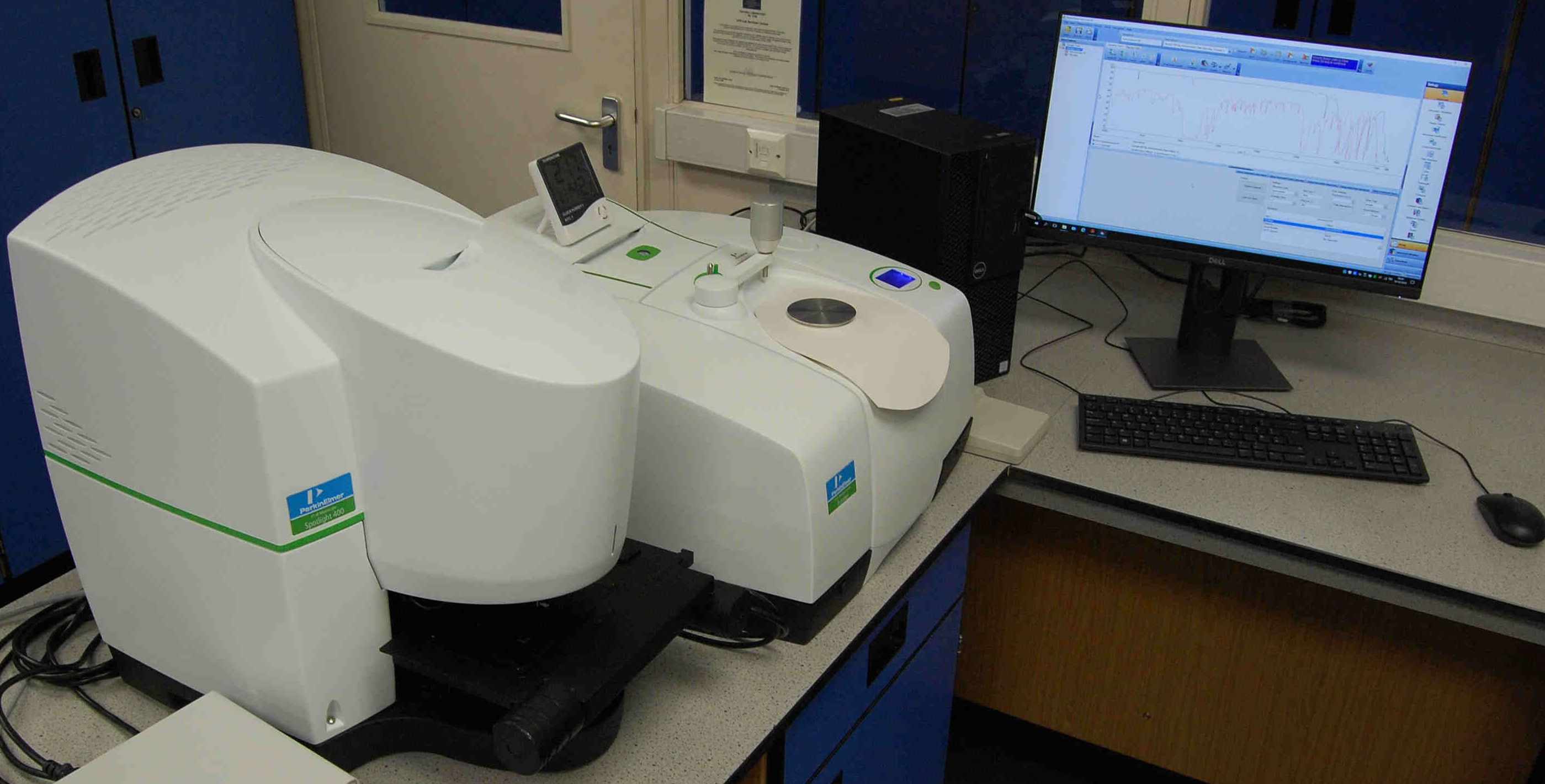FTIR Spectroscopy Presentation
| Introduction to FTIR Spectroscopy | ||
|---|---|---|
| FTIR stands for Fourier Transform Infrared Spectroscopy. It is a technique used to analyze the molecular composition of a sample by measuring the absorption of infrared light. FTIR spectroscopy is widely used in various fields such as chemistry, pharmaceuticals, materials science, and forensic analysis. | ||
| 1 | ||
| How FTIR Spectroscopy Works | ||
|---|---|---|
| In FTIR spectroscopy, a broadband of infrared light is passed through the sample. The sample absorbs certain wavelengths of infrared light, which correspond to specific molecular vibrations. The transmitted light is then analyzed using an interferometer, which measures the intensity of the various wavelengths. | ||
| 2 | ||
| Advantages of FTIR Spectroscopy | ||
|---|---|---|
| FTIR spectroscopy provides a detailed molecular fingerprint of a sample, allowing for identification and characterization. It is a non-destructive technique, meaning the sample remains intact after analysis. FTIR spectroscopy is highly sensitive and can detect even small amounts of different compounds in a mixture. | ||
| 3 | ||
| Applications of FTIR Spectroscopy | ||
|---|---|---|
| FTIR spectroscopy is used in the analysis of polymers, including identification of different polymer types and characterization of their structures. It is utilized in the pharmaceutical industry for drug formulation analysis, quality control, and identification of unknown substances. FTIR spectroscopy is also employed in environmental monitoring to detect pollutants and analyze soil and water samples. | ||
| 4 | ||
| Limitations of FTIR Spectroscopy | ||
|---|---|---|
| FTIR spectroscopy cannot determine the absolute concentration of a compound in a mixture, only its presence. Some compounds may have overlapping absorption bands, making it difficult to distinguish them. Sample preparation is crucial in FTIR spectroscopy, as impurities or contaminants can interfere with the analysis. | ||
| 5 | ||
| Conclusion | ||
|---|---|---|
| FTIR spectroscopy is a powerful analytical tool that provides valuable information about the molecular composition of samples. Its wide range of applications makes it a versatile technique in various scientific fields. With advancements in technology, FTIR spectroscopy continues to evolve, offering even more precise and accurate analysis capabilities. | ||
| 6 | ||





